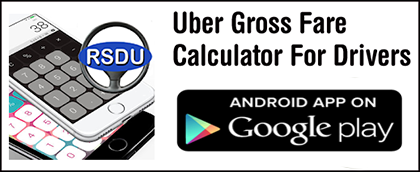In December 1994, Gary Hollis was hit by a bike in Ultimo in Sydney. The culprit wore a bright green jacket, tumbled over his own handlebars, and when he got up said “sorry mate” and left.
Hollis suffered a knock to his knee that the joint never fully recovered from. He sued the rider’s courier company and won in a case that went all the way to the high court.
Hollis’s lawsuit is well known among the discontented workers of the gig economy – the growing number of Uber drivers and Deliveroo riders who work for less than minimum wage as independent contractors, but who are pushing for something more.
Last week the Fair Work ombudsman announced it was launching an investigation into Uber, amid claims of sham contracting from Ride Share Drivers United (RSDU), a lobby group that argues drivers are effectively employees and should be treated as such.
The ombudsman is also “working with” a Deliveroo rider on a similar complaint against the food delivery company.
Prof Ron McCallum, an expert in labour law from the University of Sydney, says the Fair Work investigation could change the structure of the gig economy.
If drivers are said to be legal employees of the San Fransico-based company, rather than subcontractors, they would be entitled to much higher wages, superannuation and annual leave for those who drive more than 38 hours a week.
From the current rate of $1.38 a kilometre for Uber, or $10 a delivery for Deliveroo, workers could be entitled to an award wage of $20.36 an hour, with penalty rates and overtime – as happened in a recent sham contracting ruling against Pizza Hut delivery drivers.
Fair Work’s Pizza Hut ruling, taken with Hollis’s case, is encouraging advocates such as RSDU and the Transport Workers Union to push for change.
In Hollis’s case, the high court ruled that the rider who knocked him down was an employee of his courier company because he wore its uniform – offering a direct parallel with the bicycles and bright branded jackets of Deliveroo, Foodora and Uber Eats.
McCallum says the test the ombudsman will apply is one of control.
“The question really will be: what control does Uber have? Is the employee required to work specific times? What are the disciplinary procedures here? We know employers can discipline employees but they can’t discipline contractors. It’s all very slippery.”
As the law stands, McCallum is anticipating that Uber drivers will not be classed as employees when Fair Work delivers its findings. Deliveroo, he believes, is a more likely scenario. But for both, it is an uncertain area of law.
Last year in the UK an employment tribunal ruled Uber drivers were employees, calling the company’s self-employment argument “fictions” and “twisted language”.
A similar suit from Deliveroo riders in the UK accused the company of “deliberately fogging”the definition of a contractor, in a case that is still being determined.
The UK’s Uber ruling provides an example of how practical effects can inform the law, says McCallum.
“In England, the judges said they were more concerned with what happened on the ground, rather than in the contract, and they took evidence from drivers.”
As part of its investigation in Australia, Fair Work is accepting statements from members of RSDU about the level of control they feel Uber exerts.
“There’s room for practical effects to massage the law,” McCallum says. “I don’t think the argument will succeed under current laws, but laws can change”.
A union that isn’t a union
Max B is the founder of RSDU and whenever anyone asks if he runs a union, he has a clever answer prepared: “We’re not really a union. The same way that Uber says they’re not a taxi company.”
Max, who spoke to Guardian Australia on the condition of a pseudonym for fear of losing his job (“They’d fire me in a second”), says Uber drivers should be classed as employees and entitled to an award-level wage.
Despite having more than 1,000 members, his group has no plans to become a formal union: “We use technology in just the same way Uber are. They use technology to control the market and control the drivers and we use it exactly the same way: to unite the drivers.”
RSDU’s submissions to the ombudsman will constitute an important part of the legal decision. In a media release in June, RSDU said Uber drivers’ inability to negotiate fares or communicate with customers outside the Uber app meant they were subject to a “classic sham contracting arrangement”.
“We are being treated as subcontractors but we are anything but,” Max says.
“Uber controls every aspect of our daily work, from the bookings to the ratings. The drivers don’t know where the passenger is going until they are in the car. As a subcontractor you should be able to make a decision whether it’s a profitable trip or not. You should be able to know where you are going.
“The prices aren’t sustainable and drivers have been complaining for a year now. As a subcontractor, drivers should be able to bargain about the price of the service. But Uber does what an employer would do – set the price.
“They can’t just call us whatever they like and get away with it.”
[click to read the full article]
Quick links
- Why are Uber drivers in Melbourne not happy
- What are drivers demanding
- Join RSDU and stay informed, it’s free
- Join our Facebook group
- How to contact RSDU
- Join the RSDU forums





